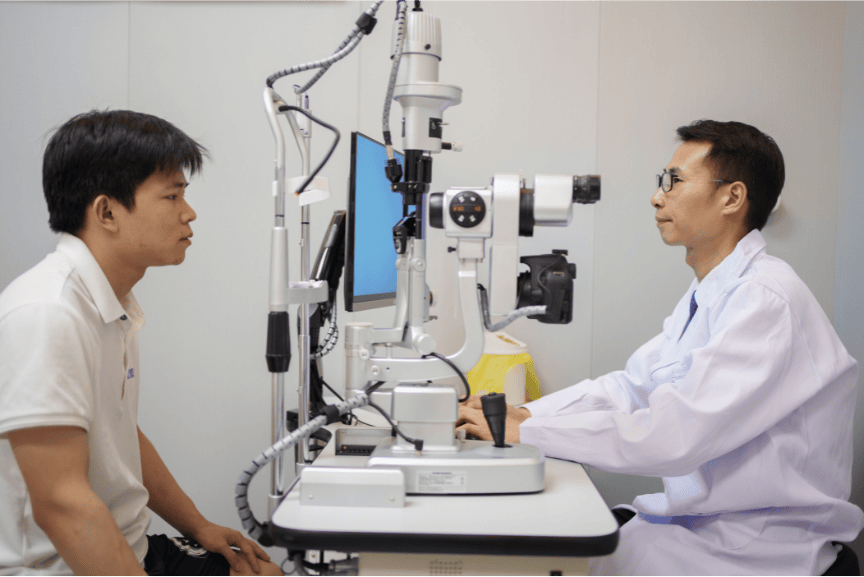What You Need to Know about Vision Loss at the Workplace
There are various workplace injuries; some need less time to heal; others may change your life forever. Injuries like fractured bones may prevent you from going to work for several months, but injuries such as vision loss may never get better at all. This is why workers’ comp for vision loss is so important.
North Carolina treats vision loss at the workplace differently than other injuries. Here is what you need to know.

What types of accidents cause loss of vision?
Workers may lose the vision in one or both eyes or retinal detachment because of these accidents:
- Exposure to silica, sparks, or other minute items of sawdust
- Radiation caused by ultraviolet or other radiation, fluorescent lights, natural lights, and lasers that are used to do the job.
- The extra light exposure can affect the eyes and lead to vision loss. Such cases are considered an occupation disease and would be harder to prove if the plaintiff decides to file a lawsuit against their employer
- Being hit with objects like glass shards, wood splinters, glass shards, or small items that could scratch cornea or cause irritation.
- A slip and fall accident that cause traumatic brain injury that leads to vision loss
- Motor accidents could also cause head trauma and lead to loss of vision
- Tools like wires, saws, staples, and nails can hurt the eye and cause damage
- An explosion of faulty equipment
- Chemical burns caused by splashes
- Excessive use of computers. Some workers do not use proper overhead light (they use only the backlight of their computers). Long periods of looking at computer screens without taking breaks can lead to eye problems and migraines and nausea.
What benefits can I get for vision loss?
Workers in North Carolina are entitled to compensation for any medical surgeries or doctor visits that are necessary. In the case of vision loss because of a workplace injury or occupational illness, the doctor may suggest surgical procedures that can help the person who lost their vision. If the eye injury is compensable, the doctor would recommend any surgery that will improve the worker’s vision that should be covered by the company’s insurance.
Workers can get 2/3rds of their lost wages until they get back to work within a period of a maximum of 500 weeks.
If the injured worker gets back to work, they may still get further compensation of 2/3rds of their average weekly salary for additional time if their vision loss is permanent.
- Loss of one eye – The worker can get a maximum of 120 weeks. If the eye damage or the loss of vision is total, the injured worker is considered to have a loss of an eye and can get up to 120 weeks of compensation. For partial loss, the employee should seek a review by an ophthalmologist who will determine the percentage of eye loss or vision loss caused by the injury. If the vision loss is 85% or higher, vision loss will be treated as a full loss, and the employee gets compensation for a total of 120 weeks. If the vision loss is lower than that, the percentage of benefits will match the percentage of loss. If the vision loss is 20%, the worker gets 20% of 120 weeks or 24 weeks for the eye, 50% loss brings half of 120 weeks, or 60 weeks, and so on.
- Loss of both eyes – Total vision loss is considered a permanent disability, so the claim is not restricted to the maximum 500 weeks. The employee may get lifetime compensation benefits at 2/3rds of the average weekly wage.
Vocational rehabilitation
Eye loss and disfigurement compensation mean that an injured worker who becomes blind or loses vision might be suitable for vocational rehabilitation (it would help them to learn a new job skill). The worker may attend school for vision loss so he or she can learn how to communicate and use their new skills. This right to vocational rehabilitation is more probable to fit for office workers or educated workers.
If you have suffered vision loss because of a work injury or suffer from an occupational illness that is worsening your eyesight, you probably wonder about your rights if you seek a claim.
It is time to consult a worker’s compensation attorney who will answer every question you have and help you begin the process of seeking your compensation.
Our team at Harman Law is here to stand by your side. Contact us today to set up a consultation!


